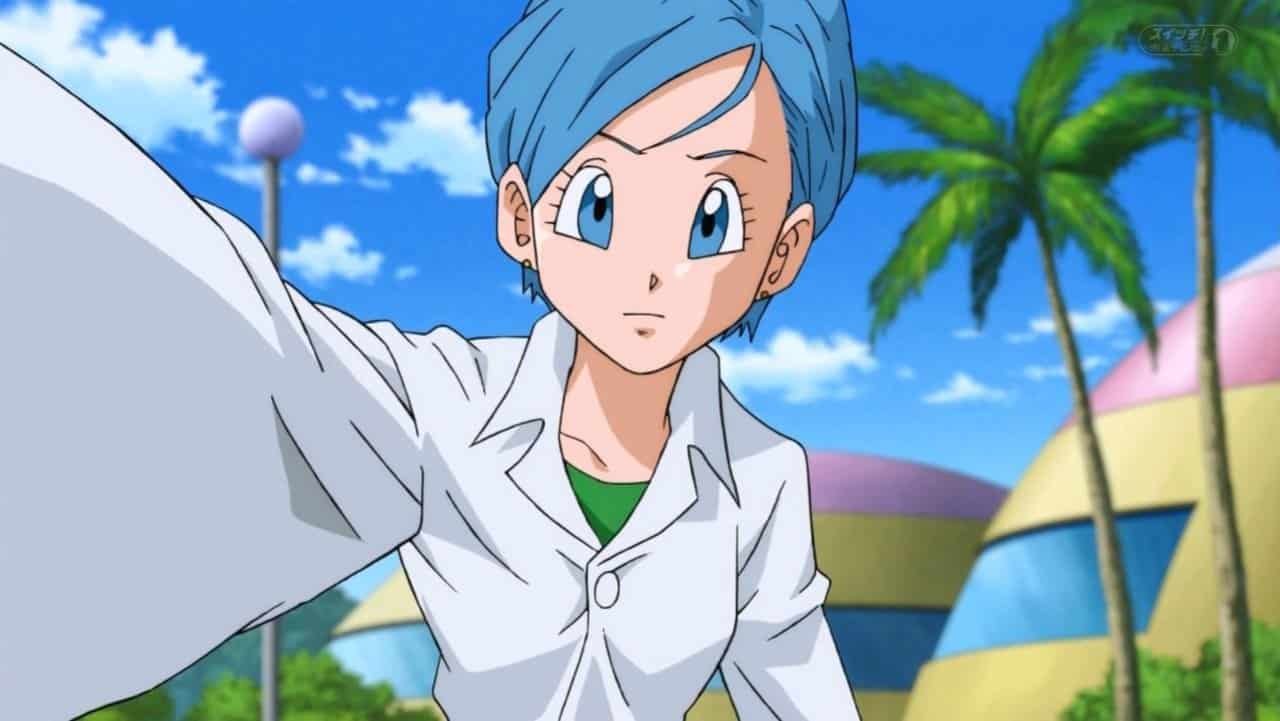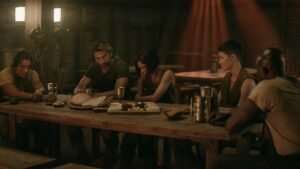Monica Rial explores her career in anime and how the medium has evolved along with the modern cultural landscape.
Anime is now a dominant force in modern culture. From the myriad Hot Topic t-shirts and merchandise to its central place in the afterschool schedule, anime, and especially Dragon Ball, have cemented their place in the contemporary zeitgeist. To that end, there are few voice actors that have impacted their audience in so many essential roles as Monica Rial.
Known for her iconic voice and her role as Bulma on Dragon Ball, Monica has lent her talents to countless characters including Tsuyu Asui AKA Froppy from My Hero Academia, Index from A Certain Magical Index, and Hyatt from Excel Saga. With Dragon Ball Super still dominating the charts worldwide, CGMagazine took some time to catch up with Monica and touch on her process, how she started as a voice actor, and her view of the modern landscape of Anime.
CGMagazine: I want to start quickly by touching on how you got into voice acting?
Monica Rial: It was a happy accident. I was doing theatre. I’d always wanted to be a stage actor and a friend of mine named Jason Douglas, who is actually the voice of Beerus, was the one that told about this place in town, and they do the English dubs to anime. And I am like, “I thought that stuff was done in LA, sure I will go to an audition.”
So I went and called them and they had auditions that weekend, which is rare that it happens that quickly. So I walked in and auditioned, and they asked if I had done this before, and I said, “No, this is all brand new!”
Sure enough, as I was auditioning and feeling it all out, I discovered I loved it and thought it was fantastic, but only thought of it as a good job while in college or whatever. And yet we are like 20 years later, and I am still doing it. So it was a very happy accident.
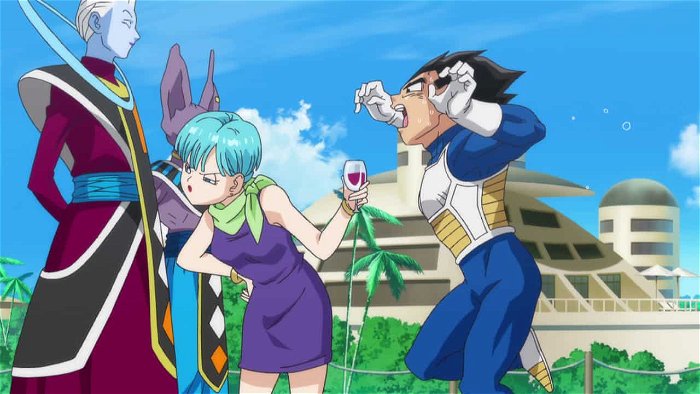
CGMagazine: You’ve had a prolific career in anime, from some of the most famous to some of the more obscure. What are some of your favourite roles you played?
Monica Rial: I always tell people it is hard for me to choose not just because I’m a Libra and we are bad at decisions, but because I play all these awesome, kick-ass characters. You know, I get to play really strong women, like Bulma. She is brilliant, and she is a scientist, she’s strong. And especially in Super, all the guys want to get with her and I find that awesome. If I had to pick a current five, it would probably change on the daily, but right now I would definitely say Bulma, Mary-Jane from Fairytale, Tomoko from a show called WataMote, which is a bit lesser known, Tana from the Saga of Tanya the Evil, and Froppy from My Hero Academia because she is adorable.
CGMagazine: You’ve been playing the character of Bulma for a while now, how do you find the character has changed as time has gone on, and are you happy with her evolution?
Monica Rial: I love the growth that she’s had over the series. I started really early on, so I got to play little bitty baby Bulma and then through the Budokai and then of course Super and all the movies. Watching the growth of her character, in particular, has been exciting. You know that Goku is kind of this forever child, he does not do a whole lot of growing up. He learns but doesn’t really grow up. Whereas Bulma… we watched her over the course of the show go from looking for the Dragon Balls so she can wish for a boyfriend, to now being kind of in control of everything that’s happening in Super.
One of the things that I love is there has been a little bit more of a spotlight on Bulma and Vegeta’s relationship. You get to see why the two of them ended up together as opposed to just guessing. You can hear a little of the affection and the love, and the protection of the family. I love the maternal side that has come over here because it not only applies to Trunks and Vegeta and now Bulla, but also to the rest of the crew. She has always been a bit motherly with Goku and as she’s gotten older she has taken that role on for everyone.
I love the growth, and I think she’s a great role model for girls. It shows how you can still be in touch with your feminine side yet be intelligent and take risks. I think she is a brilliant character and I love that she has grown along with the fans.
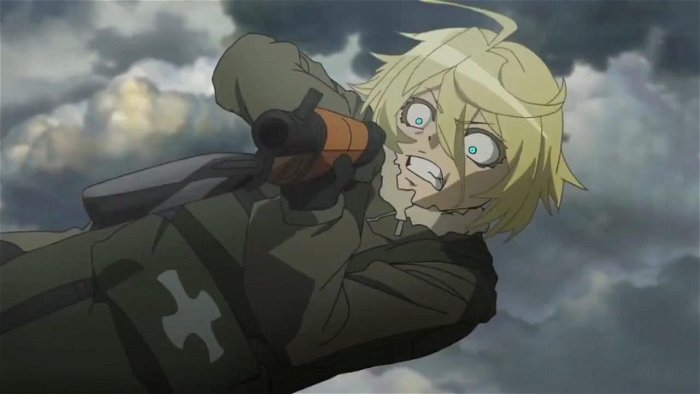
CGMagazine: I want to quickly touch on the fandom since right now Dragon Ball is possibly the biggest anime ever and it is still going strong. With it spanning so many generations, and with it being the entry show for many anime fans, what are your thought on its importance as a landmark for the medium, and how has the fandom changed over the years?
Monica Rial: You know it’s been stellar to watch its growth over the years. Because I tell stories about back in my day where you had a choice of either a dubbed VHS or a subbed VHS, and the subbed VHS is usually cheaper, but you are still looking at about $50 for like three episodes. And here you are complaining about $5.95 a month—you have no idea where we came from back in the day.
But it’s been brilliant watching the fandom grow. I know when I first started going to conventions it was a lot of men. Now it’s all-encompassing. You see a lot of women, a lot of men, and a lot of families. You can see entire generations where the parents grew up watching anime, and now their kids are watching anime also. What I love about Dragon Ball is it’s been such a massive presence in the anime community. Going to New York Comicon to promote some stuff and it was amazing because you would see a lot of that. You would see the entire family cosplaying with a Roshi, a Bulma, a Vegeta, and a Goku.
It was like an entire three generations of family all where they’re showing their love of not only anime but of Dragon Ball. I think it has been such a colossal force because people feel so strongly about it and they can relate to those characters. You can see a little bit of yourself in Goku, Vegeta or Bulma. Look at the people that watched me back when they were in school and hadn’t really kept up with it since and are now watching Super. Kind of like getting back on a bicycle. All those feelings flood back, all that love of that show comes back automatically as you sit down to watch it again. It’s kind of weird to walk into a Hot Topic and be surrounded by all the anime merchandise that now lines the walls. It is amazing to see, but also a bit overwhelming at the same time.
CGMagazine: Before you got a role voicing acting in anime did you watch anime yourself or was it a new concept to you?
Monica Rial: My little brother Miguel was a huge Dragon Ball fan. We used to go every summer to visit my family in Spain. This is way before it came to Canada or the US, but Dragon Ball would be on television in Spain, and Miguel fell in love with it. I would have to get up every morning and translate it for him because he could not speak Spanish very well. But It was amazing to me because he started really getting into the show, and then it was like he wanted the manga, he wanted the toys, anything he could get his hands on.
I thought it would be tough to find when we get back to the states, and about three years later was when Dragon Ball first started making its North American debut. And at that point he had moved on, he was still interested in Dragon Ball but has started watching things like Akira and Ghost in the Shell and things that I could really get into and I found fascinating.
So I think I have always been an anime fan, I just did not release it was anime. I remember watching Thundercats and Voltron and not realizing there was any difference.
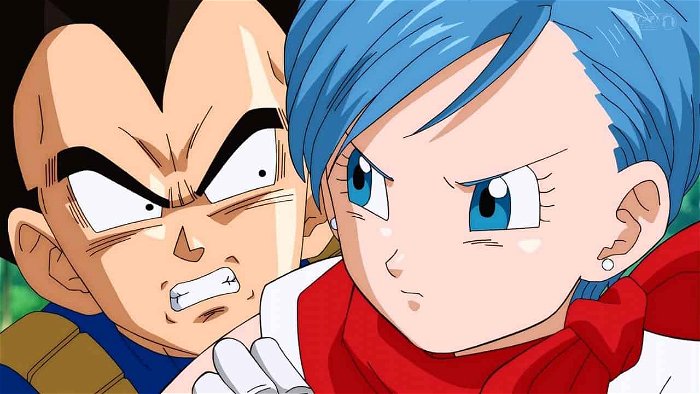
CGMagazine: How did your brother react when he found out you were part of a show that he grew up with?
Monica Rial: Oh, he about died. I mean he was such a fan I remember buying him sheet sets and comforters and things for his room, it was crazy. So I remember of course we had NDA’s and We’re not supposed to talk about what we’re auditioning and what we are working on until it has been announced, but that was the one time that I was like, “Miguel, I am going to tell you something and you have to promise you’re not going to tell anyone because then it will be gone and I will lose it and I will be sad forever.” I told him I auditioned for Bulma and I have never seen my brother so excited.
And for me, it was an extraordinary moment as an older sister. To be able to go and say, “You know that thing we share, that is a huge part of my life now.” And he has been very sweet about checking in with me and peeking in, and he has friends that are huge Dragon Ball fans and he will walk me around the place he works. It’s really cool to have a brother that is proud of what I do.
CGMagazine: You’ve played such a variety of characters, how do you go about selecting the characters you play, and what is the process to transition that character from Japanese to English?
Monica Rial: What we did back in the day was we would have full out auditions. And an audition would be that you would go into the studio and they would have binders full of what are called sides, and sides would give you a picture of the character. They would include lines and maybe reactions, and it would at times include notes from the directors about what is happening in the scene. You would then read what you felt best about or that you thought your voice lends itself to the best.
Then sometimes you would go in there and the director would say that is great but would still want to hear you on another specific character. It was a really neat process of going through and sort of creating a character and then deciding which one would work the best. Now we do a lot of the simuldubs which means we don’t have a whole lot of time or the materials to actually do auditions. So a lot of times the directors will just cast us based on what they know of our repertoire and our credit and then those are almost more difficult because you go into a show and you are told you will be this little girl or a psychotic grandfather.
And then it’s a matter of listening to the Japanese because you want that to be your springboard to try and capture the tone of the original concept. Then at that point, I rely very heavily on what action is happening in the animation and then to my director. On certain shows, it is easier than others. Bulma’s very tricky while recoding Super because she is animated very broadly across lines. So she’ll have three or four lines in a row, and one line she will seem very angry, and the next she will have this big smile on her face, then she goes back down. Those sorts of things you have to pay extra close attention to your director to ensure you are on the track they want you to be on.
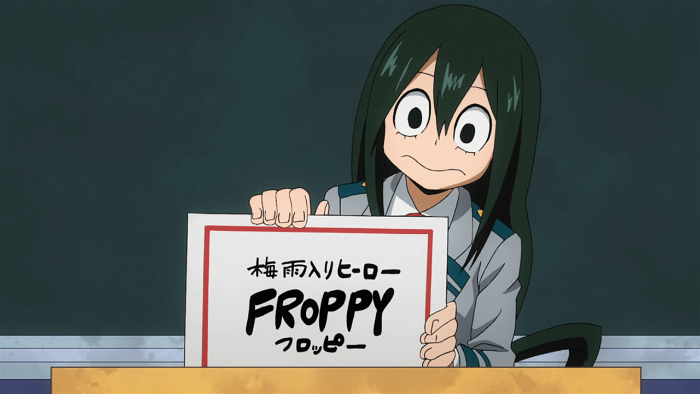
CGMagazine: Now I do want to quickly touch on the concept of simuldubs since that is a new concept Funimation has pioneered. How has it been working with the idea as a voice actor?
Monica Rial: It’s been a huge change and I would say we are finally getting to be a point where everybody is like, “This is what we do now, this is the way of the world” It’s got its pros and cons definitely, I mean back in the day the process would involve watching an entire show before we went in to record. We were able to figure out how much I want to give at a particular moment, because I know I will have more to offer later, or you knew where your character was going over the course of the series. Where now you don’t get a whole lot of information usually, so we rely even more on the directors to kind of root us in the right direction, and a very challenging, but I like the challenge because I have been doing this for such a long time. To me, it is kind of cool to go in weekly, and kind of like the viewer we don’t know what is going to happen next week. You are learning as the character learns, which in my opinion as an actor gives more organic reactions and reads. We don’t have time to study up and overthink it; you are just acting in that moment, which I think sometimes can give a better performance depending on the actor. I think the hardest thing is that you know is that we are sticking with the Japanese television season which means every three months your life and schedule change.
But yes, it has been challenging but very rewarding. Now that we’re getting acclimated and learning I think that their ultimate goal will probably be trying to get it the same day for everything, but I think it is a matter of getting the Japanese companies on board with that concept.
